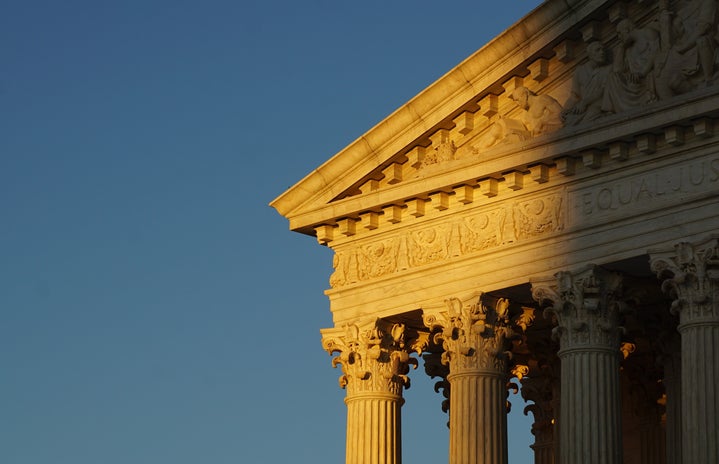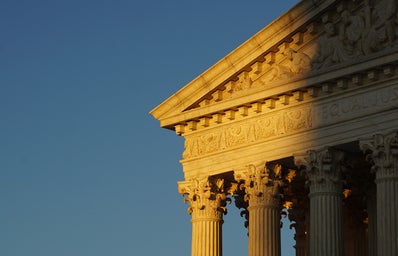A divided Senate voted 52-48 on Monday night to confirm Judge Amy Coney Barrett to the Supreme Court.
Just 30 days after her nomination by President Trump, Justice Barrett became the 115th justice to the Supreme Court and fifth woman to ever hold a seat on the bench.
With only a week to go before election day, Barrett’s confirmation solidifies a 6-3 conservative majority on the highest court for the foreseeable future.
Immediately following her confirmation, Justice Clarence Thomas administered Barrett’s Constitutional oath at a White House ceremony.
Chief Justice John Roberts will administer Barrett’s judicial oath on Tuesday at a private ceremony at the US Supreme Court.
Following her judicial oath, Barrett will be an active participant in court proceedings.
With unanimous opposition from the Democratic minority, Barrett’s controversial confirmation highlights deep polarization between party lines.
Since her nomination at the end of September, Barrett’s confirmation raises concerns in the eyes of democrats regarding monumental decisions on abortion, healthcare and immigration.
Barrett’s confirmation is the first in 151 years to occur without a single vote from the opposing minority party, according to the New York Times.
Following her swearing-in ceremony, Barrett addressed the American public, speaking directly to concerns regarding party alignment.
“The oath that I have solemnly taken tonight means at its core that I will do my job without any fear or favor and that I will do so independently of both the political branches and of my own preferences,” Barrett said.
President Trump also spoke at the ceremony, speaking highly of Justice Barrett and her “sterling character.”
“Justice Barrett made clear she will issue rulings based solely upon a faithful reading of the law and the Constitution as written not legislate from the bench,” he said. “As you take your oath tonight, the legacy of our ancestors falls to you.”
Barrett has served on the U.S. Court of Appeals for the Seventh Circuit since 2017, after her nomination by President Trump.
Democrats accused the Republican Senate of bigotry and hypocrisy for allowing Barrett’s confirmation so close to the presidential election.
“The American people will never forget this blatant act of bad faith. They will never forget your complete disregard for their voices, for the people standing in line right now voting their choice, not your choice,” Senate Minority Leader Charles E. Schumer (D-N.Y.) said just before the Senate vote.
But Republicans asserted the lawfulness of their actions, with Senate Majority Leader Mitch McConnell defending the decision shortly after Schumer spoke.
“The reason we were able to do what we did in 2016, 2018 and 2020 is because we had the majority,” said McConnell.“No rules were broken whatsoever. So all of these outlandish claims are utterly absurd, and the louder they scream, the more inaccurate they are.”
Few Democratic officials have supported Barrett’s initial nomination. If elected, Joe Biden has said that he will appoint a bipartisan commission to examine expanding the Supreme Court.



